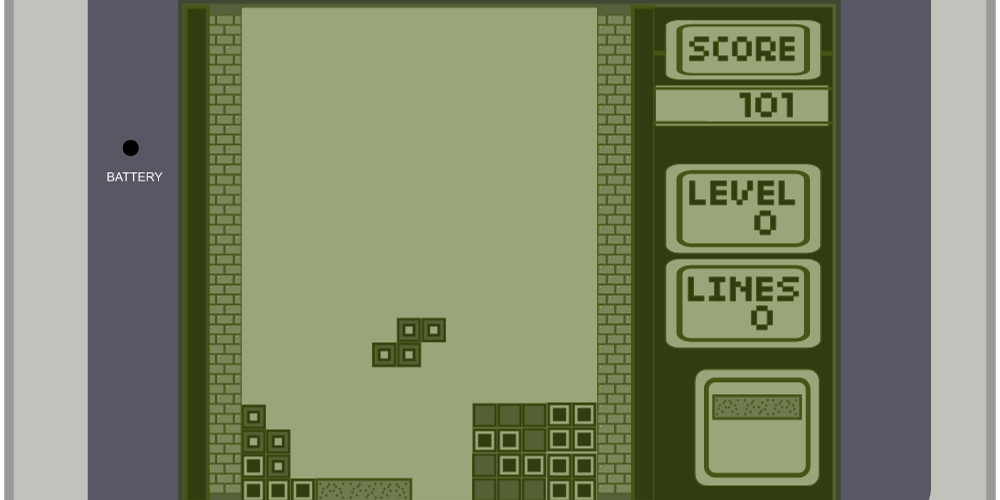Why Tetris is the 'perfect' video game
20 Dec 2023

Since its inception in 1984, Tetris has become nothing short of a cultural phenomenon, captivating a diverse audience of gamers and non-gamers alike. Conceived by Russian software engineer Alexey Pajitnov, the seemingly simple game of arranging falling blocks, known as tetrominoes, into complete lines has enthralled players around the globe. To call Tetris a 'perfect' video game might initially seem hyperbolic, yet as we delve deeper into its design, cultural impact, and the psychological satisfaction it provides, it becomes evident why this title deserves such an accolade.
Intuitive and Accessible Design
The essence of Tetris lies in its uncomplicated yet profound mechanics. The premise is straightforward: rotate and position falling shapes to create complete horizontal lines, which then disappear, granting the player points and preventing the pile of shapes from reaching the top of the playing field. This simplicity is what makes Tetris universally accessible; with no language or complex controls to serve as barriers, anyone can understand and enjoy the game within minutes.

Tetris's design is the epitome of the "easy to learn, hard to master" philosophy that makes for enduring game experiences. Players of all skill levels can find an appropriate challenge, from novices looking to clear just a few lines to veterans chasing the high score by clearing lines in quick succession for a "Tetris" – the game's namesake achievement of clearing four lines at once.
The Rewarding Escape of Cognitive Flow
Tetris harnesses a captivating aspect that effortlessly plunges players into a harmonious trance, creating an immersive state of flow. This remarkable sensation, aptly named by psychologist Mihaly Csikszentmihalyi, encapsulates the exhilarating thrill of unwavering concentration, total engagement, and sheer pleasure while engrossed in any endeavor. As the game progresses, the tetrominoes fall faster, requiring quick thinking and reflexes. This escalating difficulty requires players to enter a state of heightened concentration, often leading to a meditative and satisfying experience that can make hours seem like minutes.
Furthermore, Tetris offers a puzzle-solving gratification that is deeply ingrained in human psychology. By creating order out of chaos, players experience a tangible sense of achievement and control. The act of neatly packing the tetrominoes together and clearing lines plays to our intrinsic desire to organize and make sense of our surroundings.
Cultural Icon
![]()
Beyond its mechanics, the game has cemented its status as a cultural icon. It was one of the earliest examples of the puzzle game genre and has influenced countless other video games. Additionally, Tetris has been available on virtually every gaming console and platform, contributing to its pervasive presence. Its catchy Russian folk melody, "Korobeiniki," has become instantly recognizable, embedding itself into the fabric of pop culture.
Tetris also represents a significant moment in video game history, bridging cultural divides during the Cold War era. Its journey from the Soviet Union to the global market is a narrative of international intrigue, filled with complex licensing deals and legal battles that underscore the game's unlikely path to worldwide success.
Adaptability and Evolution
The evolutionary trait of Tetris lies in its adaptability. The core mechanics have remained unchanged, but the game has seen numerous iterations and adaptations. From variations with different shapes and rules to integrations with modern VR technology, Tetris has continually evolved, ensuring its relevance in an ever-changing gaming landscape.
Modern versions like Tetris Effect have combined the fundamental gameplay with entrancing visual and auditory effects, amplifying the immersive experiences. Multiplayer iterations such as Tetris 99 have introduced a competitive angle, pitting players against each other in a battle royale-style confrontation, proving the game's potential for innovation.

Psychological and Therapeutic Effects
Remarkably, Tetris is not just a game but a tool with potential therapeutic properties. Research has indicated that playing Tetris could lead to a reduction in the occurrence of intrusive memories associated with traumatic events, possibly due to cognitive blockade that occurs when engaging with the game.
In everyday terms, Tetris can act as a form of stress relief. Its requirement for concentration and the ensuing state of flow provides a distraction from daily troubles. The sense of accomplishment after successfully navigating a particularly challenging sequence of tetrominoes can be a powerful mood booster.
Tetris and Education
The application of Tetris transcends entertainment. Its puzzle nature has educational benefits, being used to teach spatial recognition and problem-solving skills. Simultaneously, its increasingly challenging pace can aid in developing quick decision-making abilities and improving hand-eye coordination. Schools and various educational programs have recognized these benefits, integrating the game into learning curricula.
The Timelessness of Tetris

In a medium where technology rapidly becomes obsolete and trends shift with the wind, the endurance of Tetris is a testament to its perfection. Unlike games that rely heavily on graphical prowess, which can age poorly over time, Tetris's abstract visuals are as appealing today as they were in the 1980s. This timelessness ensures that the game can be enjoyed by generations of players without feeling dated.
The measure of a game's worth can often be gauged by its longevity and the fondness with which it is held in collective memory. In the case of Tetris, both of these are unparalleled. Its impact on the gaming industry, popular culture, and individuals globally is demonstrative of an experience that transcends the sum of its parts.
Conclusion
Tetris represents a confluence of simplicity, challenge, cultural significance, and psychological benefit that creates an experience many consider 'perfect.' Through its intuitive design, cognitive benefits, and ability to adapt and endure, Tetris remains a bedrock of video gaming, its fame and influence unequaled. As we celebrate its lasting legacy, we recognize that Tetris isn't just a game—it's a global phenomenon, a piece of history, and, indeed, the epitome of a 'perfect' video game.







